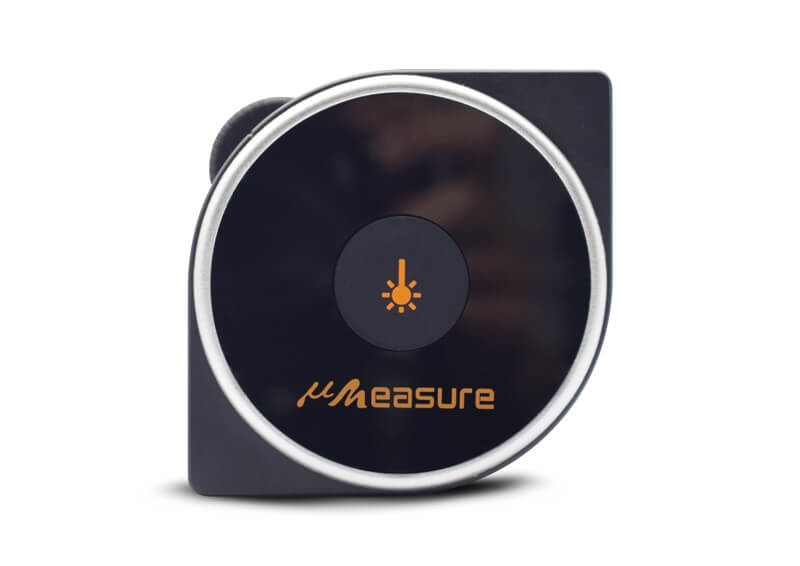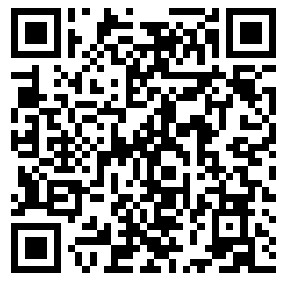
Francis Mangaro is a hit.
In the last six yearsyear-
Old ceo of Nova Biomedical, a privately held blood manufacturer
Testing equipment for patients with diabetes has blocked attacks from the giant Abbott Lab, Roche and Medtronic.
All claimed that Nova violated their patented technology or stole their trade secrets.
Nova earns just $0. 165 billion and can't even afford a long legal battle, but Manganaro refuses to be bullied.
"My partner and I decided that we would rather get off the boat and lose the company than give in to people like this," he said . ".
At the center of the Whirlpool is Nova's home blood glucose meter. -a cellphone-
A device of size that takes a drop of blood from your fingertips and spit out a digital blood glucose reading a few seconds later.
Although less than third of Nova's sales come from glucose meters (
It can also make desktop blood
Hospital testing equipment)
So far, the company has spent $31 million to defend itself.
After three trials, Nova won several decisive victories, but Manganaro left a lot of blood behind.
He fired 60 employees, pulled out $15 million in bank loans, suspended products and temporarily frozen the company's £ 401 (k)
Plan to donate.
Overall, it took him nearly 50 weeks. 8 per year)
Including giving evidence in three trials.
Winning the lawsuit became "the primary consideration for almost every decision we make," he said ".
"Anything else that must be sacrificed.
"Medical device companies do not hesitate to exercise intellectual property rights.
In the patent trial, the burden of proof is borne by the defendant to prove that the plaintiff's patent is invalid.
It could cost $10 million to do so. -
Most of them were before the trial began.
So many small companies don't even try.
"You can eliminate competitors at any time, and you can do that," said Nova's lawyer, Bradford "Jim" Badke . ".
"It's been happening all the time.
Mangaro grew up in Waterbury, Connecticut.
Son of Sicilian
American bricklayer
After earning a degree in biology from the University of TAFs, he found a sales job at a chemical instruments company, which eventually led him to enter the business of the sensors.
In 1976, he launched Nova with six partners, which initially made desktop blood
Intensive testing machine-
Waiting for nursing nurses who can't reach the center lab.
As the company grew, it moved from a storefront to a ballet studio in Newton, Massachusetts.
Currently headquartered near Waltham on the Charles River, it is a former sewing machine factory.
Nova's first hand-held blood
Sugar reading equipment for home use was launched in 2003.
It uses only 300 nm of blood and has an effect in 5 seconds, as good or better as anything on the market.
Recently, Nova designed 1 m of drugs for hospitals to correct many drug interactions that may lead to results.
The wrong high reading can lead to a lethal dose of insulin.
According to US data, incorrect readings have been linked to 13 deaths since 1997S.
Food and Drug Administration;
More such cases may not be reported, the researchers said.
Nova's current technology has also been carefully adjusted for other parameters that may produce incorrect readings, such as abnormally high or low red blood cell counts.
The $8 billion handheld meter uses small test strips with small electrodes to place a drop of blood on the test strips.
The chemicals on the test paper react with glucose in the blood, and remove electrons from sugar molecules, producing currents on the test paper proportional to glucose concentration.
The meter reads the current and converts it into two-
Blood sugar numbers.
The price of the meter is about $20, but the real money is to sell replacement strips.
In the excavation of 1997 Xinxing electricians Zheng Changyong and mensheng Handani winalta, the existing blood glucose meter was improved.
Winarta borrowed a technology called laser etching from the semiconductor industry to carve tiny tests.
Peel the electrode on the Gold film.
This new design enables the device to obtain sound readings from extremely small blood drops.
Results: the needle is smaller and the test results are faster.
In order to get the news quickly, Nova has reached an agreement with insulin syringe manufacturer Dickinson bücton, who is eager to distribute a 1-meter insulin syringe in his own name.
As the inventor and patent holder of the technology, Nova has agreed to pay most of the costs of patent litigation.
BD logic instrument listed on January 2003.
When Therasense, a small diabetes test maker, claimed that Nova's instruments violated two of its patents, trouble began.
When Abbott agreed to buy Therasense for $1, the seemingly heated debate between the two companies quickly deteriorated.
According to data from Becton, Dickinson and Co. , at the beginning of 2004 was 2 billion
Documents of the court
Becton won the court's competition and filed a lawsuit in the first place, demanding a judgment that it did not infringe.
Later in the same year Abbott sued BD and Nova.
The case soon expanded to four Abbott patents.
Manganaro was pretty optimistic at first.
If there is a little overlap in the patent, he thinks he can negotiate a cross
License or royalty arrangement. No dice.
At the same time, the relatively small sales team in Picton is also difficult to compete with companies such as Abbott and Roche.
In September 2006, Picton decided to withdraw from the Glucose Monitoring Market (
Manganaro found this out when Becton's news came out)
Just as Nova's legal costs are rising, it has to rush to find another dealer.
Later that year, Manganaro said he had dinner at the Coach Grill steakhouse in Wayland, Mass.
He had known a senior Abbott executive for years and wanted a settlement.
The executive argued that Nova was not able to defend the lawsuit and said that Nova would give up the matter if it agreed to withdraw from the glucose monitoring business and hand over its technology to Abbott.
Manganaro recalled: "His expression is: 'You realize you 've put the farm on here. '.
"It's easy for me to refuse him.
Abbott declined to comment on the exchange.
At the end of 2007, Roche, who was then a Nova co-defendant in Abbott's lawsuit, suddenly sued Nova for violating two of its patents. (
Later, Roche and Abbott reached an agreement. )
When Nova is clearly tied, Manganaro suspects Roche will pile up.
"Roche's lawsuit is to get rid of us," he said . "
A spokesperson for Roche said the company "vigorously defended" its intellectual property rights and added that "the size of Nova has nothing to do with the lawsuit.
"In February 2008, Medtronic, known for its cardiac pacemakers and vibrators, sued Nova in the third federal court for stealing its trade secrets, and Manganaro suffered another physical blow.
As part of the initial agreement with Becton, Nova developed a wireless blood glucose meter to communicate with Medtronic's insulin pump.
After taking out of the market, Medtronic turned to Johnson & Johnson to make blood glucose meters for these pumps.
But Nova has also been selling its wireless meter under its own brand.
Medtronic argues that Nova no longer has the right to do so, arguing that the mechanism by which Nova is used to communicate with Medtronic's insulin pump is a trade secret.
By then, the trend of Abbott began to shift. Over a four-
On 2008, the federal judge declared the partial invalidation of the two Abbott patents and declared that Nova did not infringe on the third patent;
The fourth was declared invalid in a jury trial.
While Nova has the upper hand, Abbott's case shows why deep pockets can be a huge advantage in patent wars.
Of the three Abbott patents that were knocked down, one requires the removal of membrane filters on most of the previous test strips.
Abbott has been rejected 12 times before convincing the United States. S.
The Patent and Trademark Office allows.
Its argument to the patent examiner is: ignore the other sentence in the previous patent saying that the filter is optional ---
Although Abbott made almost the opposite argument to the European Patent Office on the same sentence.
Judge William Alsup ruled that Abbott's own staff had "consciously and intentionally" misled the patent office to obtain a patent for the film and ordered Abbott to pay $6 million for Nova counsel.
Abbott appealed its decision to deceive the patent office on "unfair conduct.
"Abbott has taken appropriate action in this case and will be confirmed," a company spokesman said . ".
By the end of 2008, Nova's legal bills had grown from these three cases, requiring the payment of Ropes and Gray.
Manganaro raised cash by firing 8% employees and getting a bank loan of $15 million-
A near miracle in the credit crisis.
Nova's long-term lender refused to take the risk, so Manganaro had to change the bank.
The bet was paid off.
In September 2009, a jury in Los Angeles ruled that Nova had not stolen medtron's trade secrets. (
After all, Nova has been involved in the development of wireless blood glucose meters since the beginning. )
A Medtronic spokesman said the company had a "bad experience" with Nova's original product and he told Nova that it would replace its partners only after Nova launched its competitive product
Medtronic did not appeal.
The drama is not over yet.
Roche recently filed an appeal against Nova's ruling that the instrument did not infringe its patent.
If Roche wins, the case may be sent back to the district court where the gloves will fall off again.
At the moment, Manganaro is focused on building its own business rather than defending it.
Over the past year, he has hired 27 salespeople with the goal of selling highly accurate blood glucose meters for hospitals rather than larger, albeit scattered domestic markets.
Nova has signed contracts with well-known hospitals including Mount Sinai Medical Center in New York and Intermountain Healthcare in Utah.
Business has never been so good as usual.
"This is not the battle we chose," Manganaro said . ".
"But it turns out it's a battle we have to win in order to survive.
"Intellectual property is a valuable asset ---
If you have the ability to protect it.
The cost of $10 million to defend the high
$3 patent action.
8 million median damages awarded in patent infringement cases in 2001-
07 482,871 patent applications for 191,927 patents in 2009 were issued to 2,700 patents per capita in 2009
Top patent litigation lawyers charge $1,000 per hour for infringement lawsuits filed every year, with an average number of patent cases heard each year of 100, accounting for 57% of the trials won by patent holders 34.
Average number of months from which the patent was obtained: the USPTO website;
General Patent Corporation;
Stanford IP database; Ropes & Gray;
PwC accounting firm.

